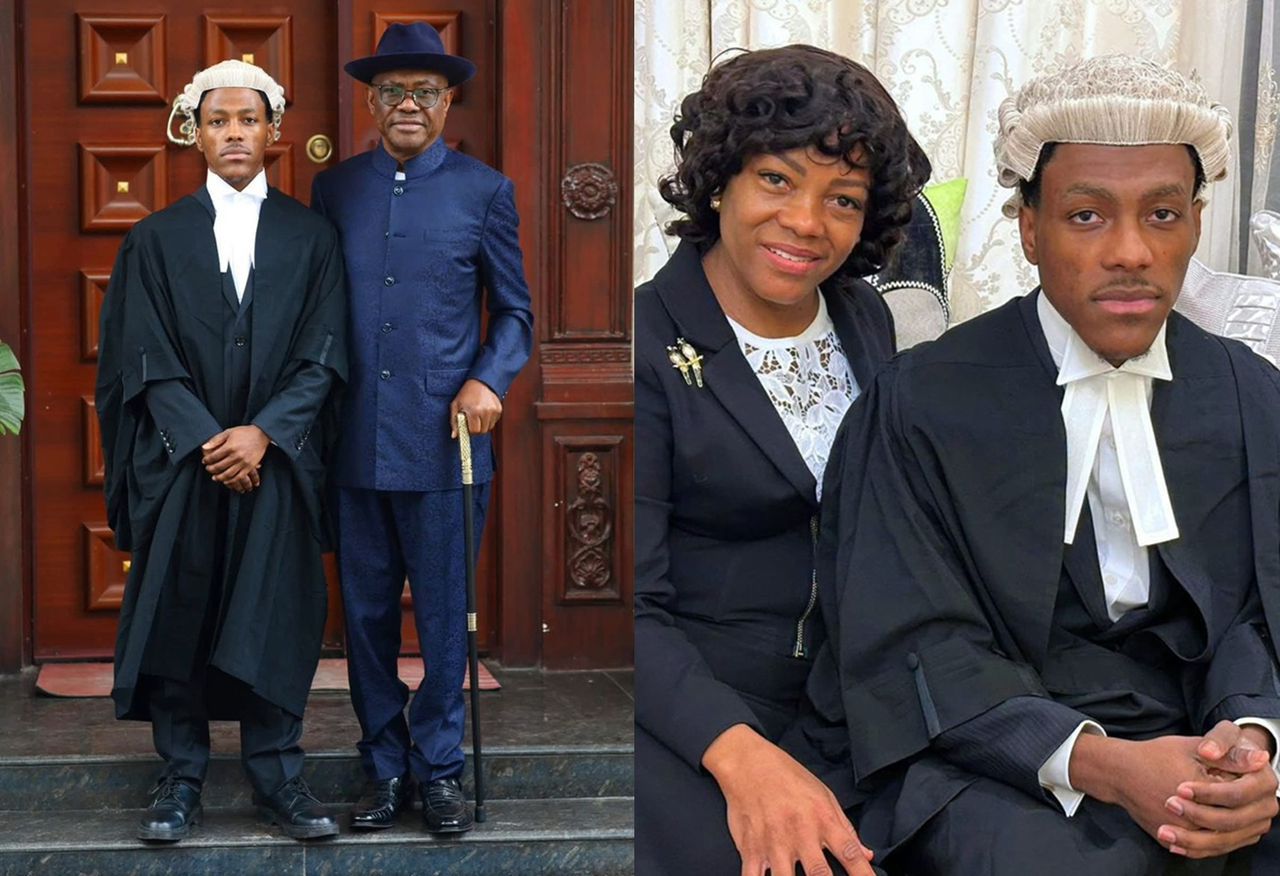
APC Chieftain Obidike Sparks Controversy, Declares “God Won’t Forgive You If You Work Against Tinubu

The Nigerian political space has once again been thrown into heated debate after a fiery declaration by a prominent chieftain of the All Progressives Congress (APC), Mr. Obidike Chukwuebuka, who boldly told Nigerians that opposing President Bola Ahmed Tinubu is not just an act of political rivalry but a spiritual offense that attracts divine consequence. Obidike, who is known for his unapologetic loyalty to the president and his administration, made the controversial statement while addressing party members and the media, stressing that it is a sacred duty for every Nigerian to rally behind Tinubu if the country must make meaningful progress. According to him, working against the president is tantamount to working against God’s will, and those who indulge in such acts risk incurring divine wrath. His words, “God won’t forgive you if you work against Tinubu,” have since gone viral, igniting mixed reactions across social media platforms and political circles.
The remark comes at a time when the country is experiencing heightened economic and social challenges, with citizens groaning under the weight of inflation, fuel subsidy removal, and the controversial new policies introduced by the administration. For many Nigerians, Obidike’s statement appeared less of a spiritual revelation and more of a desperate attempt to shield the government from growing criticism. Yet, for others, it reflects the depth of loyalty within APC’s inner ranks, where some party members see Tinubu not just as a political leader but as a divine instrument appointed to redirect Nigeria’s fortunes. The claim, however, has added more fuel to the already tense political climate, drawing criticism from opposition parties, civil rights activists, and ordinary Nigerians who see it as an insult to the collective intelligence of citizens and a dangerous attempt to mix religion with politics.
Reactions poured in almost immediately after the statement circulated. Social media platforms erupted with hashtags such as #GodAndTinubu, #Obidike, and #Forgiveness, with users posting memes, satirical takes, and biting criticisms. Some argued that politicians often exploit religion to manipulate public opinion, while others mocked the idea that God’s forgiveness is now being tied to political allegiance. One user on X (formerly Twitter) wrote, “Imagine placing Tinubu and God on the same scale. This is idolatry disguised as politics.” Another said, “When citizens can’t feed, and inflation is at its peak, what we need is good governance, not spiritual threats.” Meanwhile, some APC loyalists defended Obidike’s statement, interpreting it as a call for unity rather than literal divine condemnation. According to them, Nigeria is at a critical turning point, and citizens must give full support to the president for reforms to take root.
The controversy also sparked responses from clerics and religious leaders who distanced themselves from Obidike’s remarks. Some pointed out that God’s forgiveness cannot be tied to human politics, urging politicians to be cautious when invoking religious sentiments to defend their leaders. A senior pastor in Lagos described the comment as “blasphemous” and warned that such utterances could further divide Nigerians along religious and political lines. Islamic clerics also weighed in, calling on political figures to stop dragging the name of God into partisan politics.
Beyond religion, analysts believe Obidike’s words reveal the intensity of political loyalty within APC and the desperate need to defend Tinubu at all costs. Since assuming office in May 2023, Tinubu’s administration has faced relentless criticism over economic hardship, unemployment, and insecurity. The removal of fuel subsidy, though praised by international financial institutions, has worsened the cost of living for ordinary Nigerians. The naira’s continued depreciation and rising prices of food and basic commodities have fueled discontent, leaving citizens skeptical of promises of renewed hope. Against this backdrop, Obidike’s statement is being viewed as an attempt to silence dissent by weaponizing religion.
Opposition parties such as the Peoples Democratic Party (PDP) and Labour Party (LP) wasted no time in responding. A spokesperson for the PDP described Obidike’s remark as “reckless and insensitive,” accusing APC chieftains of prioritizing blind loyalty over genuine governance. Labour Party officials also condemned the comment, insisting that Nigerians cannot be coerced into political submission through fear of divine punishment. According to them, holding leaders accountable is a democratic right, not a sin. Civil society organizations also joined in, calling on Nigerians not to be distracted by religious manipulation but to remain steadfast in demanding accountability from those in power.
Political observers note that this is not the first time religion has been invoked in Nigerian politics. Over the years, politicians have consistently sought to cloak themselves in divine legitimacy, presenting their electoral victories as the “will of God” and opposition as rebellion against divine order. This rhetoric, while appealing to deeply religious citizens, has often stirred controversy and heightened political tension. Obidike’s statement, analysts argue, follows the same pattern but goes even further by linking divine forgiveness directly to political loyalty, a move many see as dangerous for democracy.
Interestingly, this episode has also exposed the growing rift between Nigeria’s political elite and the suffering masses. While ordinary citizens are focused on survival amid worsening economic realities, politicians appear more concerned with consolidating power and silencing critics. By invoking God’s name in defense of Tinubu, Obidike may have intended to inspire loyalty, but the backlash suggests it has instead widened the trust deficit between the government and the people. For many Nigerians, the pressing question is not whether God will forgive dissenters but whether their leaders will deliver on promises of better governance, jobs, and security.
As the debate rages on, Obidike has stood by his words, insisting that his statement was a call for Nigerians to unite behind the president rather than an attempt to intimidate critics. In subsequent interviews, he argued that Tinubu’s reforms, though painful in the short term, will eventually yield positive results. He maintained that Nigerians should view the current hardship as a necessary sacrifice for long-term progress. His insistence, however, has done little to quell the backlash, as critics remain unconvinced that divine authority should be used as a shield for political leaders.
This incident is likely to remain a hot topic in the coming weeks as Nigerians continue to grapple with the delicate intersection of faith, politics, and governance. While some loyalists see Tinubu as divinely ordained, many others insist that governance must be judged strictly on performance, not spiritual allegiance. The danger, critics warn, is that mixing religion with politics could breed authoritarian tendencies where dissent is no longer tolerated and leaders are exalted beyond accountability.
For now, the phrase “God won’t forgive you if you work against Tinubu” has entered the growing list of political soundbites that capture Nigeria’s turbulent democracy. Whether it will fade as another passing controversy or spark deeper conversations about the role of religion in politics remains to be seen. What is clear is that Nigerians are not easily swayed by threats of divine punishment. With hardship biting harder daily, citizens are more concerned with how policies affect their lives than with who claims God’s forgiveness. For them, the real question is not about spiritual offense but about practical solutions—when will governance translate to food on the table, security in the streets, and hope for the future? Until those answers arrive, no amount of spiritual rhetoric will silence the growing cry for accountability and good leadership.

